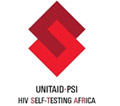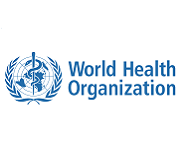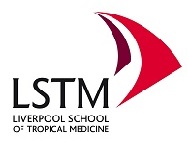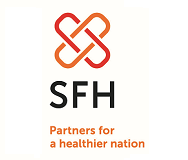Protocols and tools
Approved protocols and key tools for STAR research are as follows:
Overview of content of baseline survey
Zambia
Through a combination of qualitative and quantitative research, the Zambia studies aim to add to the evidence base on the acceptability, feasibility, accuracy and effective delivery strategies for HIV self-testing (HIVST) in Zambia. This is being done through a Clinical Performance Study, and an Impact Evaluation involving conducting a cluster randomized trial of community-based HIVST distribution. A series of case studies further explores and compares underlying economic, community and individual dynamics when HIVST is integrated into facility and community-led HIV services, voluntary male circumcision services and HIV intervention at the workplace as much as the secondary distribution of HIVST provided through clients at antenatal care and HIV testing clinics to their sexual partners.
Zimbabwe
Protocol for a cluster randomised trial of interventions to improve linkage to care following community-based distribution of HIV self-test kits in rural Zimbabwean communities, with supporting forms:
- Information sheet
- Informed consent forms for interviews with community-based distribution agents, clients and healthcare workers
Protocol for a study exploring the feasibility and acceptability of HIV self-testing in Zimbabwe, including piloting various models of distributing HIV self-testing kits in the general population and among female sex workers.
Malawi
(a) General Population
The HIV STAR-Malawi general population protocol describes research investigating the costs and benefits of introducing HIVST to the general population in Malawi. This research includes pilot work estimating the acceptability and accuracy of self-tests among intended users; as well as a cluster-randomized impact evaluation studying the effectiveness of community self-test distribution in increasing testing uptake.
- Protocol describing all work investigating the feasibility and acceptability of HIV self-testing among the general population in rural Malawi.
- Pilot formative research on acceptability and feasibility of testing, including focus group discussions, in-depth interviews, and a study of the accuracy of the test compared with a researcher-provided rapid diagnostic test:
- Participant information sheet (PS02A)
- Consent form, key informant interview (PS02B)
- In Depth Interview topic guide (PS303)
- Demographic questionnaire (PS304A), HIV test form (PS304B) and Exit questionnaire (PS304C)
- Focus Group Discussion topic guide (PS302)
- Cognitive interviews assessing the usability of instructions for use and self-test packaging:
- Cognitive interview guide (PS101)
- Instructions for use prototype (PS102)
- Consent form (PS01B)
- Participant information sheet (PS01A)
- Impact evaluation: household survey and programme data collection
Note that adolescent assent forms were also made available for studies including respondents under 18 years of age.
(b) Key Populations
The HIV-STAR Malawi key populations protocol describes research to understand the feasibility, benefits, and potential harms of introducing HIVST among female sex workers (FSW) in Malawi. This includes formative research to understand the testing needs of FSW, and piloting peer-led distribution of HIVS, and monitoring of social harms resulting from the introduction of HIVST.
- Protocol describing all research on the acceptability of introducing HIVST to FSW in Malawi.
- Formative research on testing needs:
- Piloting HIVST distribution and monitoring harms:
- Serial Biographical Interview guide (PS903)
- Critical Incident Interview guide (PS904)
- Focus Group Discussion (FGD) guide, peer distributor (PS905A)
- Audio Computer-Assisted Self-Interview (ACASI) questionnaire, FSW (PS901A)
- ACASI and Longitudinal Diary Study participant information sheet (PS09A) and consent form (PS09B). Note: Participant information sheets and consent forms for Serial Biographical Interview (PS09D), Critical Incident Interview (PS09F), FGD distributors (PS09H), and FGD for female sex workers and men who have sex with men (PS09H) are similar.
(c) Secondary Distribution
In the second phase, STAR investigates the feasibility and effectiveness of HIV self-test kits to reach the sexual partners of clients newly diagnosed at health facilities when they are distributed by these index clients. In a pragmatic cluster-randomized trial (STAR-ANC), uptake of testing and HIV prevention and treatment services such as Initiation of ART and uptake of VMMC among male partners of ANC attendees are measured.
South Africa, Lesotho, and Eswatini
A Cluster randomized controlled Trial in South Africa is exploring peer delivery of HIV self-testing in Rural KwaZulu-Natal, South Africa.
Economic research conducted in Lesotho and Eswatini estimates total and unit costs of HIVST against the standard of care if it would be delivered through different distribution models. This will help the government of these countries to determine the best way, HIV self-testing can be integrated into the existing national HIV response.
Multi-Country Research:
Few studies have explored user preferences around HIVST service delivery and optimal models for increasing uptake and linkage to care, particularly among hard-to-reach populations. STAR uses discrete choice experiments (DCE) to identify key HIVST service characteristics that drive people’s willingness to self-test for HIV and link to care, measure the relative strength of user preferences, and explore preference heterogeneity in Malawi, Zambia and Zimbabwe.












